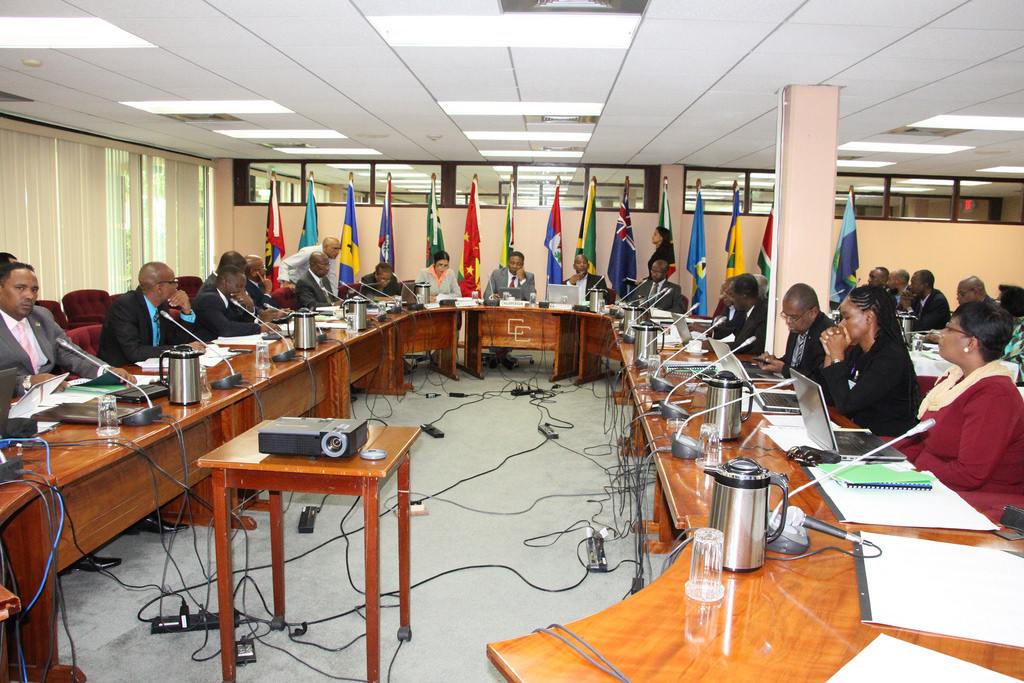
Jamaican Minister of Science, Technology, Energy and Mining, Phillip Paulwell says there needs to be a cohesive effort by Caricom Member States if the Region was to successfully develop sustainable energy.
At the special Council for Trade and Economic Development (COTED) meeting held on Wednesday, at Caricom Secretariat, Liliendaal, Greater Georgetown, Minister Paulwell stated the development of new energy policies should not be retrogressive and leave countries still heavily dependent on oil.
He made this comment in the face of oil prices plummeting to an all-time low of US$50 per barrel.
“While this fortuitous development provides some temporary respite to those of us who are almost totally dependent on this source of imported energy, we must remain resolute in our efforts to diversify, conserve and exploit our abundant supply of clean, renewable, environmentally-friendly resources,” he pointed out.
The Jamaican Energy Minister outlined that since its implementation in 2004, the Caribbean Renewable Energy Development Programme (CREDP) has become one of the most essential sustainable energy initiatives in the Region and continues to be served as an important catalyst for advancing renewable energy in Caricom.
Paulwell stressed that while the Region has made great strides, there were still many significant gaps and barriers, which needed to be overcome in order to gain access to renewable energy, energy efficiency, and reliable grid development and deployment. The Minister added that while the process to transform the Region’s energy sector will be a lengthy one, there was urgent need to create opportunities that will fast track progress.
Tangible steps
“The call by many donors, potential donors and investors for us to reform to our approach to the development of our energy resources must be heeded. Together we must identify tangible steps that as partners we can undertake in order to attract investments support of sustainable energy projects. These deliberations must emphasise our commitment to make the energy sector more efficient, sustainable and environmentally friendly, while unleashing the tremendous energy potential of our Region,” the chairman said.
Meanwhile, the two-day COTED meeting will also focus on the establishment of the Caribbean Centre for Renewable Energy and Energy Efficiency (CCREEE), which was endorsed by COTED in November last year.
According to Caricom Deputy Secretary General, Ambassador Manorma Soeknandan, CCREEE can be another critical milestone for the Region if Member States worked to ensure that it was sustained. “It should not be bent on financial complications from Member States. Donor funding usually does not take care of sustainability issues,” she pointed out.
CCREEE was envisaged to support and coordinate the execution of Caricom’s Sub-Regional and Regional Renewable Energy (RE) and Energy Efficiency (EE) programmes, projects and activities. The Centre, which is being established with the assistance of the United Nations Industrial Development Organisation (UNIDO), the Austrian Government, and SIDS DOCK, will have an explicit technical mandate and is expected to be action- and service-oriented in its operation.
Soeknandan noted too that despite the progress the Region has made, there was still much more to be done in order for the Community to meet the demands for modern, secure, reliable, efficient, costeffective energy services. While the relief of lowered oil prices is welcomed and much needed, the Deputy SG underscored that this should not deter regional efforts to harness renewable and sustainable energy.
“The relatively low price of oil that has been experienced recently must not, therefore, distract us from our efforts but rather strengthen our resolve to pursue development of our indigenous energy resources,” she noted.
Additional, the Region’s Ministers will also be discussing the Community’s Five-Year Strategic Plan, which identified energy as a cross-cutting area for building economic resilience.
By GuyanaTimes